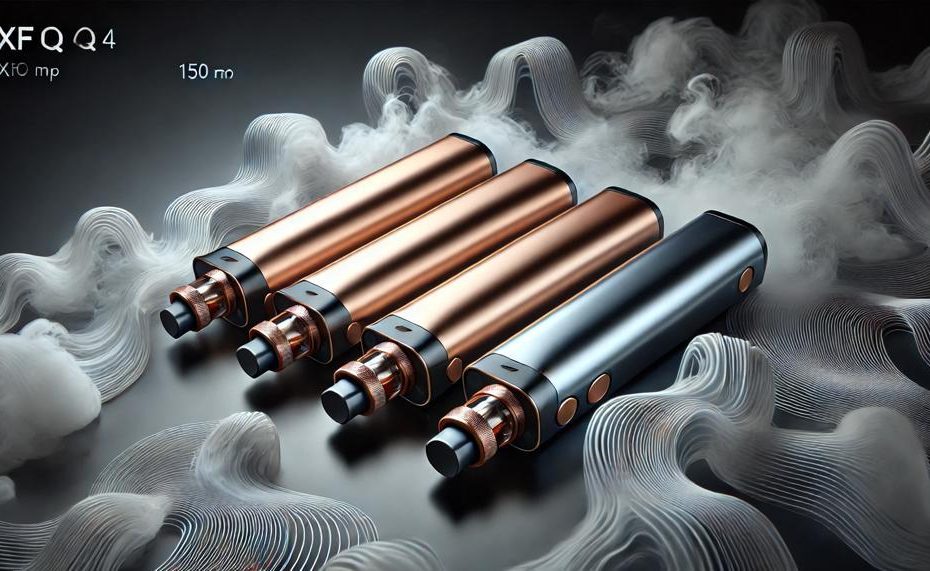Disposing of vape batteries properly isn’t just a good practice—it’s essential for safety and environmental health. Yes, those little lithium-ion powerhouses in your vape can pose significant hazards if not handled correctly. Tossing them in the trash? Absolutely not. This can lead to dangerous fires and environmental damage. So, what’s the right way to get rid of them?
First, always discharge your battery completely. This reduces the risk of fire during disposal. Next, seal the battery in a bag or case to prevent any short circuits. But where do you take them? Look for battery recycling bins, which are specifically designed for this purpose.
Many communities offer hazardous waste facilities or dedicated drop-off locations for electronic waste. It’s important to research local options to ensure compliance with regulations—improper disposal can be illegal in many areas.
Key Takeaways:
- Discharge completely: Always drain your vape battery before disposal.
- Seal securely: Place in a bag or case to avoid short circuits.
- Research local options: Find dedicated recycling bins or hazardous waste facilities.
- Never trash it: Avoid mixing with other recyclables or regular trash.
- Stay compliant: Follow local laws to avoid fines and protect the environment.
By following these steps, you’re not just following the law—you’re helping to keep our communities and environment safe. Ready to learn more? Let’s dive into the details of each step and ensure your vape battery disposal is done right.
Contents
Do NOT put e-cigarettes in your household trash or recycling
Tossing e-cigarettes into your household trash or recycling can have dire consequences. Here’s why you should avoid this:
| Reason | Explanation | Details |
| Environmental Harm | E-cigarettes contain toxic chemicals and heavy metals. | Substances like lead, nickel, and cadmium can leach into the soil and water, contaminating natural resources and harming wildlife. |
| Fire Risk | Lithium-ion batteries are volatile. | Improper disposal can lead to fires, posing dangers to waste management workers and the environment. |
| Recycling Efforts | Proper recycling allows material recovery. | Correct disposal methods enable the reuse of valuable materials, reducing the need for new resource extraction. |
Environmental Harm

E-cigarettes are packed with hazardous chemicals and heavy metals like lead, nickel, and cadmium. When disposed of improperly, these toxic substances can seep into the ground and water, causing significant pollution. This contamination can devastate ecosystems, affecting plants, animals, and even human health.
Fire Risk
The lithium-ion batteries found in e-cigarettes are notorious for their volatility. If these batteries are thrown in the trash, they can easily ignite, causing fires that endanger both the environment and the safety of waste management workers.
These fires are difficult to control and can lead to extensive property damage and personal injury.
Recycling Efforts
Proper disposal of e-cigarettes aids in recycling efforts. When these devices are discarded correctly, the materials within the batteries can be reclaimed and reused in other products. This process helps conserve natural resources and reduces the need for mining and manufacturing new materials, contributing to a more sustainable future.
Safe Disposal Tips
- Discharge the Battery: Ensure the battery is completely drained.
- Seal It: Place the battery in a sealed bag or case.
- Research Local Options: Find a local hazardous waste facility or recycling center.
- Use Designated Bins: Utilize battery recycling bins specifically designed for safe disposal.
DO take e-cigarettes to your household hazardous waste collection site
DO take e-cigarettes to your household hazardous waste collection site. The safest and most environmentally friendly way to dispose of e-cigarettes and their batteries is through designated hazardous waste facilities.
These facilities are equipped to handle the toxic chemicals and lithium batteries found in e-cigarettes, ensuring they do not end up in landfills where they can cause fires or leak harmful substances.
Improper disposal, such as tossing e-cigarettes in regular trash, can have dire consequences. Not only do the batteries pose a fire hazard, but the chemicals can leach into soil and water, harming wildlife and contaminating drinking water supplies.
| Disposal Method | Details | Environmental Impact |
| Household Hazardous Waste Collection Sites | Designed to handle e-cigarettes and their batteries safely. Check your local government’s website for locations. | Minimises risk of fire and environmental contamination. Ensures proper recycling of components. |
| Specialised Recycling Programs | Available in some areas. These programs specifically recycle lithium batteries from e-cigarettes. | Reduces landfill waste and recovers valuable materials, decreasing the need for new resources. |
| Regular Trash | Highly discouraged due to the potential hazards. | High risk of fire and pollution. Harmful chemicals and batteries can leak into the environment. |
E-cigarettes contain nicotine and lithium batteries
Improper disposal of e-cigarette batteries, containing both nicotine and lithium, poses significant risks.
- Fire Hazards: Lithium batteries are highly reactive. When damaged or improperly discarded, they can ignite and cause fires. This risk is particularly high in landfills, where batteries may be crushed or punctured by heavy machinery, leading to explosions.
- Environmental Contamination: Nicotine is a potent toxin. When e-cigarettes are thrown away carelessly, the nicotine can leach into soil and water, harming plants, animals, and aquatic life. The chemicals in lithium batteries also contribute to soil and water pollution, further damaging ecosystems.
- Human Health Risks: Nicotine exposure can be dangerous. Skin contact with liquid nicotine can result in nicotine poisoning, symptoms of which include nausea, difficulty breathing, fainting, and seizures. Additionally, inhaling fumes from burning batteries can cause respiratory issues and other health problems.
- Hazardous Waste Management: E-cigarettes are considered hazardous waste due to their toxic components. Improper disposal can overwhelm waste management systems, increasing the risk of accidents and pollution.
Potential Risks of Improper Disposal of E-cigarette Batteries
| Risk | Details | Consequences |
| Fire Hazards | Highly reactive lithium batteries can ignite if damaged. | Fires in landfills, explosions, property damage. |
| Environmental Contamination | Nicotine and battery chemicals pollute soil and water. | Harm to plants, animals, aquatic life, and ecosystems. |
| Human Health Risks | Nicotine poisoning from skin contact, inhalation of fumes. | Nausea, difficulty breathing, seizures, respiratory issues. |
| Hazardous Waste Management | E-cigarettes overwhelm waste systems, increasing accidents. | Pollution, increased risk of hazardous incidents. |
For safe disposal, e-cigarettes should be taken to designated hazardous waste facilities or specialised recycling programs.
Benefits of household hazardous waste collection
Properly disposing of household hazardous waste, such as vape batteries, yields significant environmental benefits. Here’s a detailed look:
Prevents Soil and Water Contamination
Household hazardous waste like vape batteries contains harmful chemicals. When improperly discarded, these chemicals can leach into the soil and water, contaminating natural resources. This pollution can harm wildlife and disrupt ecosystems. By using designated disposal facilities, these toxic substances are contained and treated safely.
Reduces Fire and Explosion Risks
Lithium batteries, found in many e-cigarettes, are prone to overheating, which can cause fires or explosions. Disposing of these batteries correctly mitigates this risk, protecting not only the environment but also public health and safety.
Conserves Natural Resources
Recycling hazardous waste helps conserve natural resources. When vape batteries are recycled, valuable materials like lithium and nickel are recovered. This reduces the need for mining new materials, which is energy-intensive and environmentally damaging.
By reusing these materials, we decrease pollution and lower greenhouse gas emissions associated with mining and processing raw materials.
Minimises Waste in Landfills
Proper disposal and recycling of hazardous waste keep these materials out of landfills. This reduces the volume of landfill waste and the associated environmental issues, such as methane emissions, a potent greenhouse gas.
Promotes Sustainable Practices
Proper hazardous waste management encourages a culture of sustainability. When individuals responsibly dispose of items like vape batteries, it promotes broader awareness and adoption of environmentally-friendly practices.
| Environmental Benefit | Description | Impact |
| Prevents Contamination | Stops harmful chemicals from leaching into soil and water | Protects ecosystems and wildlife |
| Reduces Fire Risks | Prevents fires and explosions from lithium batteries | Enhances public safety |
| Conserves Resources | Recycles valuable materials, reducing the need for new mining | Decreases environmental pollution |
| Minimises Landfill Waste | Keeps hazardous waste out of landfills | Reduces methane emissions and other landfill issues |
| Promotes Sustainability | Encourages responsible disposal practices | Fosters a culture of environmental awareness |
Printable fact sheet
Disposing of vape batteries safely is essential to avoid potential hazards such as fires, pollution, and harm to wildlife. Here’s a step-by-step guide for proper disposal:
Printable Fact Sheet: Proper Steps for Disposing of Vape Batteries
| Step | Action | Details |
| 1 | Identify the Battery | Confirm it is a lithium-ion battery. |
| 2 | Do Not Trash | Avoid throwing in regular trash bins. |
| 3 | Discharge Battery | Discharge completely before disposal if possible. |
| 4 | Research Options | Check local recycling centers or hazardous waste facilities. |
| 5 | Prepare for Disposal | Tape terminals and seal in a plastic bag. |
| 6 | Find Drop-Off Locations | Use Call2Recycle to locate drop-off points. |
| 7 | Avoid Mixing | Do not mix with other recyclables. |
| 8 | Follow Regulations | Adhere to local disposal regulations. |
| 9 | Promote Safety | Educate others about proper disposal practices. |
Conclusion
Disposing of vape batteries is more than a good practice—it’s crucial for safety and environmental health. Improper disposal of these lithium-ion batteries can lead to fires and significant environmental damage. To ensure safe disposal, follow these steps: discharge the battery completely, seal it in a bag or case to prevent short circuits, and find a dedicated recycling bin or hazardous waste facility. This approach not only aligns with legal requirements but also prevents hazardous substances from contaminating our environment.
Key takeaways for responsible vape battery disposal include discharging the battery fully, securely sealing it to avoid accidents, and using proper recycling or hazardous waste facilities. Never throw vape batteries in the trash or mix them with other recyclables.
By adhering to these guidelines, we protect our communities and ecosystems from the dangers of battery fires and chemical contamination. Proper disposal also supports recycling efforts, conserving valuable materials and reducing the need for new resource extraction.





